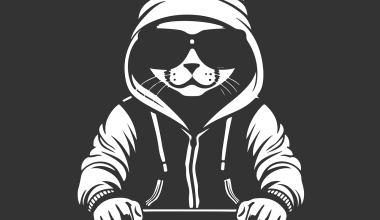In today’s music distribution landscape, getting your music out to the world has become more accessible thanks to digital service providers (DSPs) like Apple Music, Spotify, and Amazon Music. However, even with simplified processes, there’s always the possibility that your music could be rejected by a store partner. Whether it’s due to technical issues, policy violations, or quality concerns, this can be frustrating and confusing for artists. In this article, we’ll explore why your music might get rejected, what steps to take, and how to prevent it in the future.
Reasons for Music Rejection
- Metadata Issues One of the most common reasons music gets rejected is due to incorrect or inconsistent metadata. Metadata refers to the information about your track, including artist name, song title, album title, and more. If any of this information is inaccurate or violates the store’s formatting guidelines, your music could be rejected.For example, stores like iTunes and Spotify have strict rules regarding how artist names and titles should appear. If your song title contains unnecessary special characters or your artist name differs from previous releases, the store might flag your submission.
- Technical Quality Technical quality is another factor. Audio files must meet specific quality standards, such as being in the correct format (typically WAV) and having a minimum bitrate. If your submission doesn’t meet these standards, it will likely be rejected. Ensure that your audio files are high-quality and that the album artwork meets the store’s resolution requirements.
- Content Violations Stores have policies regarding the types of content they allow on their platforms. If your song contains explicit material without proper labeling or violates their policies on hate speech, violence, or inappropriate content, it will be rejected. Furthermore, stores are strict about copyrighted material. If your music includes samples or covers without proper licensing, it could lead to rejection.
- Regional Restrictions Some stores impose restrictions based on region or country. For instance, certain types of music or content may not be allowed in specific markets. This is often due to cultural sensitivities or local laws. If your distributor tries to release your music in a restricted region, the store partner may reject the entire submission.
- Duplicate Content If you’ve previously released the same song under another distributor or platform, some store partners might reject the submission to avoid duplicate entries. Always ensure your releases are consolidated under one account or distributor to avoid confusion.
What Happens After Rejection?
Once your music is rejected, your distributor will notify you, often providing the reason for rejection. Here’s what you can expect and what steps you can take:
- Notification and Explanation Upon rejection, you’ll typically receive a notification from your distributor explaining the reason. This might include detailed feedback or simply state that your submission did not meet the store’s guidelines. The clarity of this notification will depend on your distributor’s communication practices.
- Correction and Resubmission In most cases, you’ll have the opportunity to correct the issue and resubmit. For example, if the rejection was due to a metadata error or a formatting issue, you can make the necessary changes and submit your music again. Be sure to carefully review the guidelines provided by the store partner to avoid a repeat rejection.
- Seek Professional Support If you’re unable to resolve the issue on your own, consider seeking professional help. Many distributors offer customer support or have dedicated teams to help you navigate these challenges. Reach out to your distributor for guidance on how to correct the specific issue.
How to Prevent Rejection in the Future
While rejections are common, they’re not inevitable. By taking a proactive approach, you can avoid many of the pitfalls that lead to rejections. Here’s how:
- Follow Metadata Guidelines Carefully follow the metadata guidelines provided by each store. Make sure your artist name, song titles, and other information are consistent with previous releases and adhere to the store’s formatting rules.
- Submit High-Quality Files Ensure your audio and artwork files meet the technical requirements. Always export your tracks in high-quality formats like WAV, and make sure your album artwork meets the store’s size and resolution standards. Proper mastering and artwork preparation are key to avoiding technical rejections.
- Understand Content Policies Familiarize yourself with each store’s content policies. If your song contains explicit content, be sure to label it as such. If you’ve used samples or covered another artist’s song, make sure you’ve secured the necessary licenses and provided proof to your distributor.
- Work with a Trusted Distributor Choose a distributor that has a strong relationship with store partners and understands their requirements. Platforms like Deliver My Tune, which work closely with artists and offer hands-on support, can help ensure a smooth submission process.
- Double-Check Before Submission Before submitting your music, double-check every detail, from the spelling of your artist name to the format of your audio files. This step may seem simple, but it can prevent many common errors that lead to rejection.
Rejection from a store partner can be a frustrating experience, especially when you’ve poured so much time and energy into your music. However, it’s essential to view rejection as a learning opportunity. By understanding the reasons behind the rejection, making the necessary corrections, and following the store’s guidelines, you can successfully get your music out to the world.
Whether you’re a new artist navigating the complexities of digital distribution or an experienced musician dealing with unexpected rejections, always remember that persistence and attention to detail are key. The music industry is competitive, but by refining your approach and learning from setbacks, you can overcome these obstacles and continue building your career.
By staying informed, working with trusted partners, and always reviewing your submissions carefully, you’ll increase your chances of getting your music accepted and reaching a global audience.





